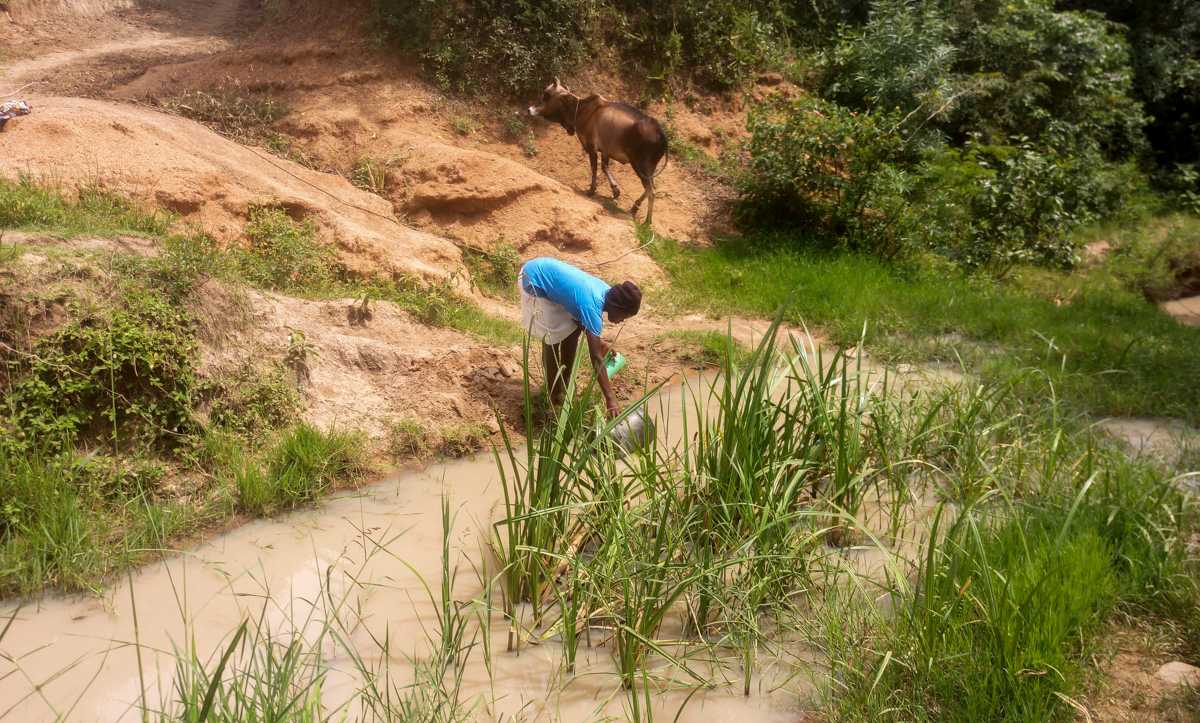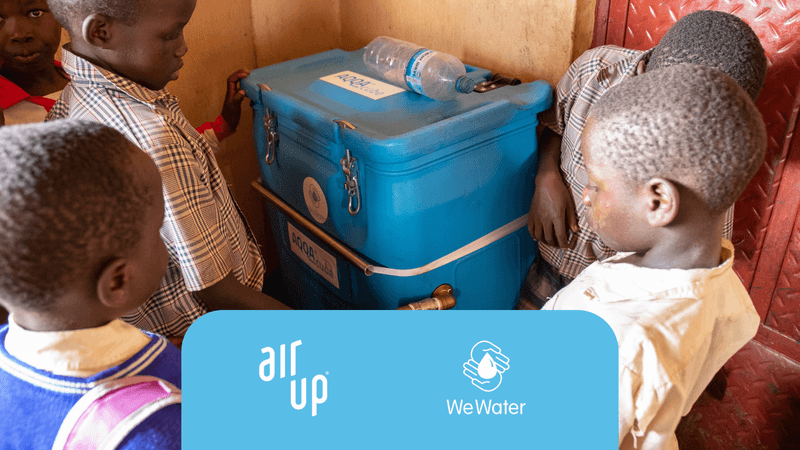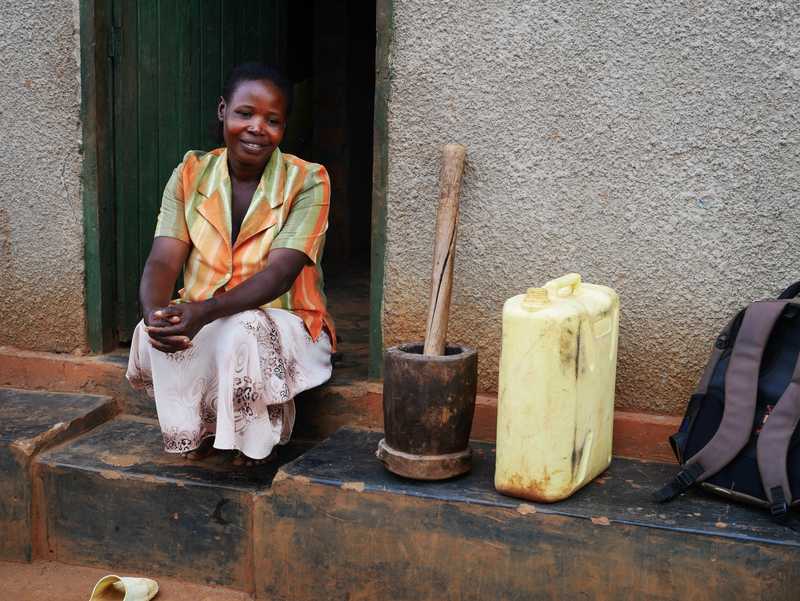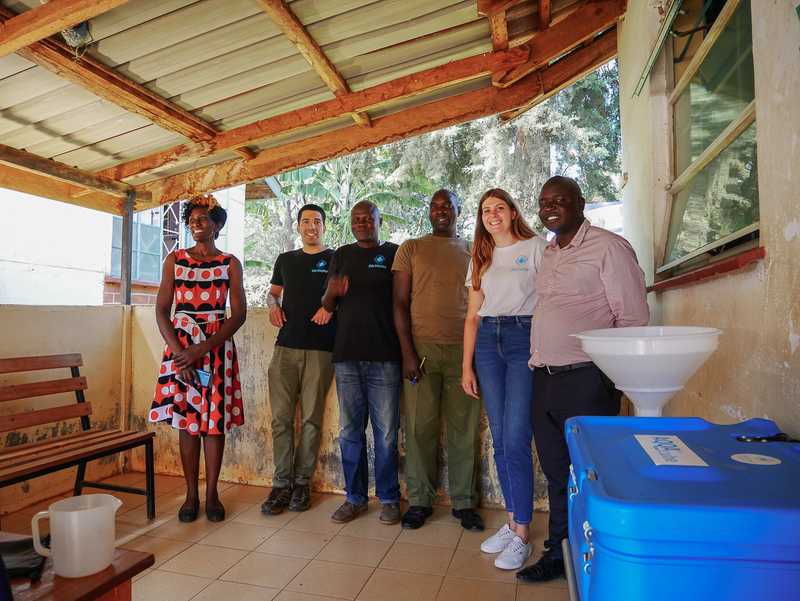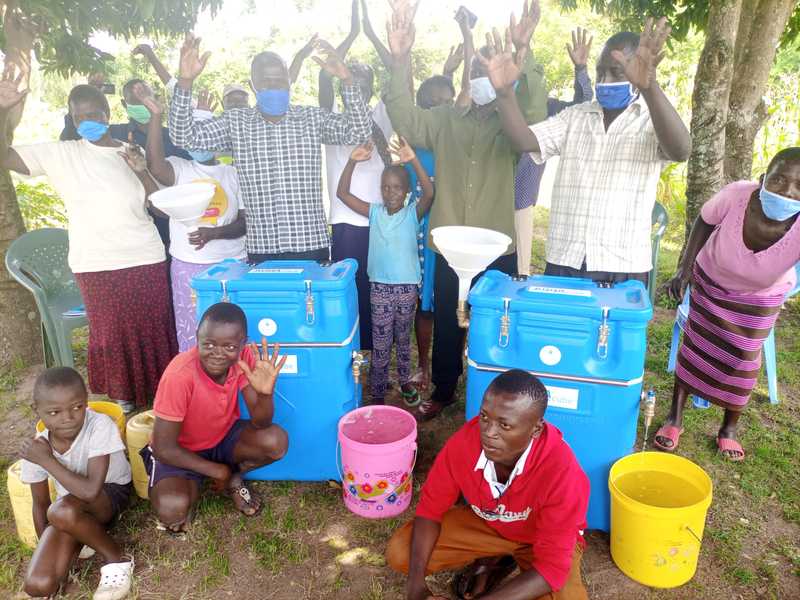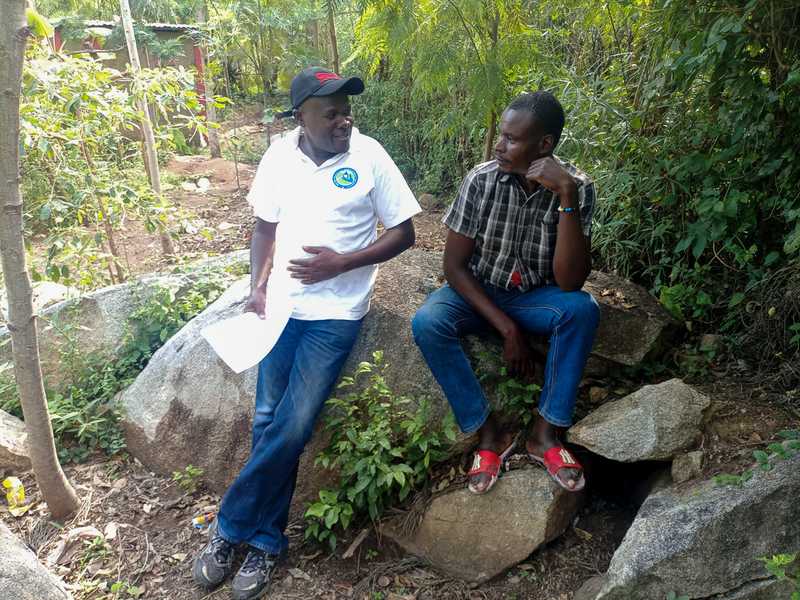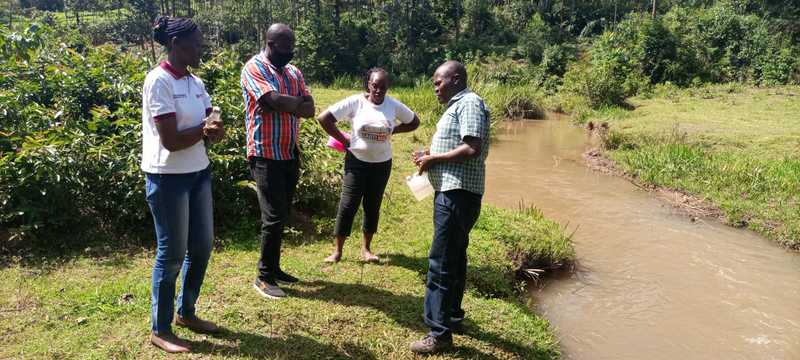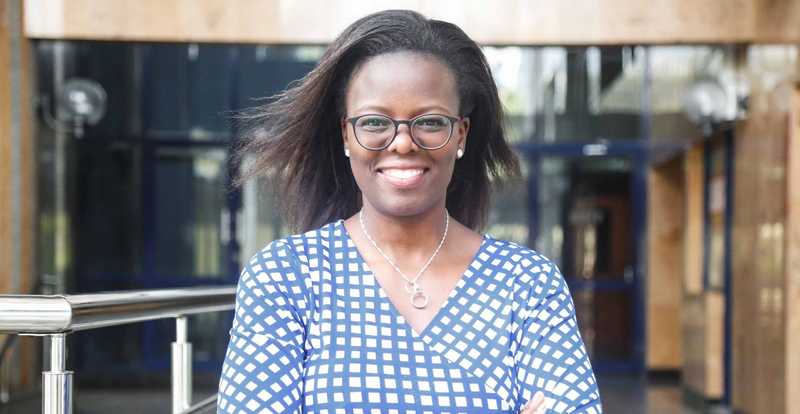Project details
Kasimori, Kenya
Kenya
To provide clean drinking water for the community of Kasimori
Donation of 6 AQQAcubes for filtering polluted water
3255 people without direct acccess to clean drinking water live in Kasimori

The project
The village of Kasimori is located in the Kisumu region on Lake Victoria. In this community, 3255 people live in 465 households. They have no access to clean drinking water. The problem: the local soil can hardly store water and the rivers dry out very quickly. Because of this, water is fetched from small standing bodies like water holes or ponds and used as drinking water. Unfortunately those waters contains a lot of bacteria.
The above mentioned drinkin water problems occur especially in the dry season – between January and April as well as between September and November. In the dry season, no rainwater can be collected and people have to rely on the contaminated stagnant waters or have to walk very long distances to reach other water sources. But these waters are also polluted: they have to share it with cattle and other animals. Diseases can be transmitted through water.
Kasimori is one of three project locations on Lake Victoria in Kenya that we are implementing in parallel. Our team member on site, Tomkin, took care of the preliminary inspection of the project sites and had water samples analysed. In this first project phase, the situation was also meticulously determined with the help of standardized WeWater questionnaires. As for Tomkin, he is a Water Protection Officer of the Kenyan Ministry of Water and an indispensable help for the realization of these projects; not only because of his know-how and the on-site communication with the community leaders. Thanks to him we will also be able to realize these projects espite the current Covid-19 pandemic, without the physical presence of the Berlin WeWater team members on site.
Project implementation
Due to the size of the three Kenya projects and the planning uncertainty caused by the Covid-19 pandemic, implementation is taking place in two phases.
For the people in Kasimori, we have estimated a total of 6 AQQAcubes, 2 in phase 1 and 4 in phase 2. To minimise transport costs, we are shipping the filters as a bundle together with the AQQAcubes destined for the other two communities.
Donations
WeWater gUG
Bank für Sozialwirtschaft
IBAN: DE90 3702 0500 0001 6026 01
BIC-/SWIFT: BFSWDE33XXX
Please state first and last name and purpose of your donation (Water filter Kenya).
Costs
Our costs for this project are expected to be as follows:
| Phase 1 | |
|---|---|
| 2.546,60 € | 2 AQQAcube |
| 583,33 € | Proportionate transport costs AQQAcubes Germany > Kenya |
| 73,33 € | Proportionate transport costs AQQAcubes in Kenya |
| 166,67 € | Proportionate travel expenses and laboratory costs during pre-visit of the projects by WeWater team Kenya |
| 3.369,93 € |
| Phase 2 | |
|---|---|
| 5.093,20 € | 4 AQQAcube |
| 266,67 € | Proportionate flight costs for one WeWater staff member |
| 816,67 € | Proportionate transport costs AQQAcubes Germany > Kenya |
| 16,67 € | Proportionate visa costs WeWater staff member |
| 200,00 € | Proportionate transport costs AQQAcubes in Kenya |
| 46,67 € | Proportionate board (20€/day) |
| 70,00 € | Proportionate accomodation (30€/night) |
| 6.509,87 € | |
| Total 9879,80 € |
Impressions

Sustainability
The sustainability of our work on this project is ensured by three points:
- Training (filter handling and hygiene)
- Filter protection
- Long-term project monitoring
The people are trained on site in the use of the filters and familiarised with the technology. In addition, people are trained in the subject of water hygiene. This is to further avoid contamination of water sources. We have found volunteers in the villages who will take responsibility for monitoring and securing the filters. At the same time they will act as contact persons for the WeWater team in Kenya in case of problems. They will continue to monitor the effectiveness of the filters and are available as contact persons for questions within the village.
Not only because of the Covid-19 pandemic are functioning hygiene measures are extremely important. But the current situation has prompted WeWater to produce a digital video manual on the use, cleaning and maintenance of our filter solutions. With this, potential problems can be solved quickly and efficiently without the needing local presence of our Berlin staff members.
